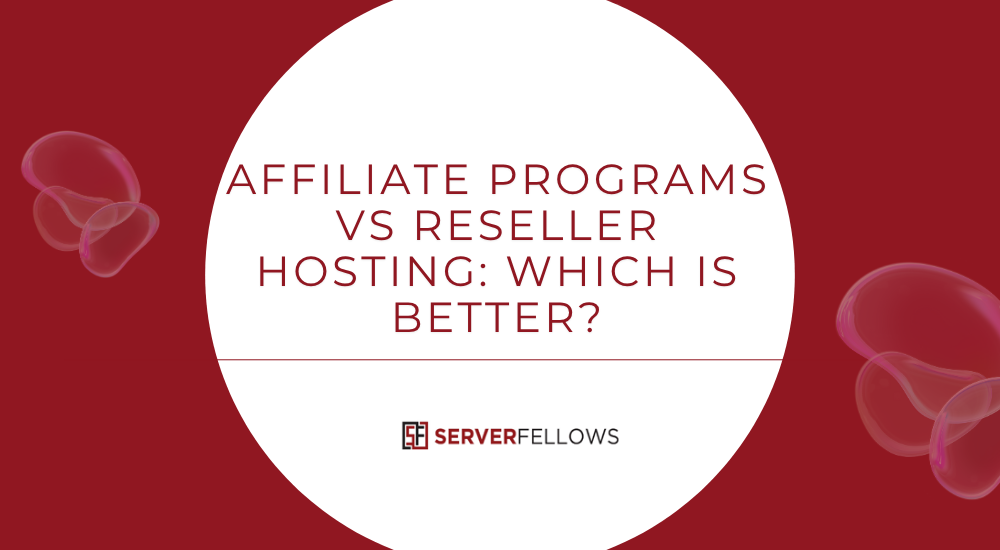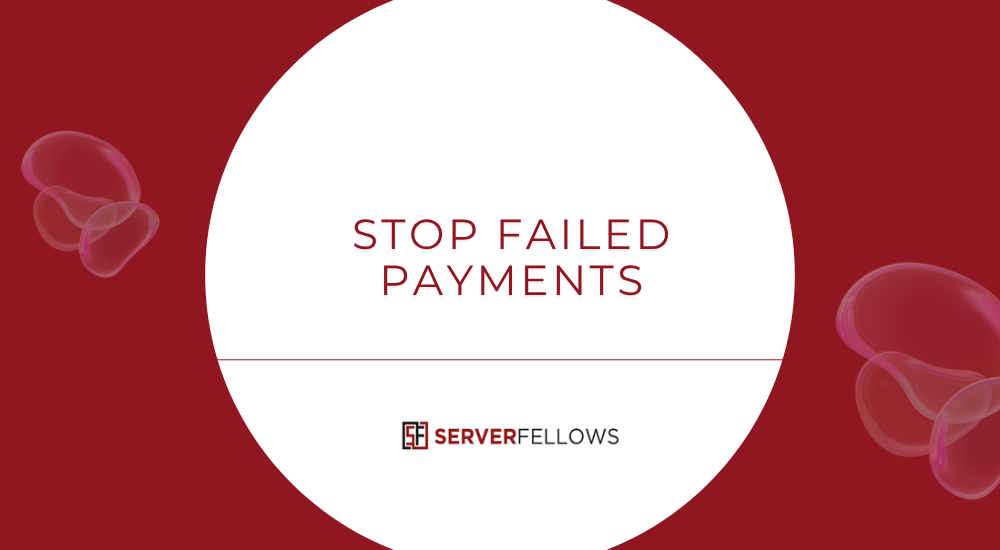
Affiliate Programs vs Reseller Hosting: Which Model Builds Better Long-Term Revenue?
Choosing between affiliate programs vs reseller hosting can shape how your business earns, scales, and supports its customers. Both paths let you profit from the fast-growing web hosting industry, but they work very differently. Reseller hosting gives you control and recurring margins, while affiliate programs offer passive, low-maintenance income.
If you’re a web designer, developer, or marketer looking to expand your income, understanding these two models will help you decide which fits your time, goals, and audience. Let’s break them down thoroughly — from structure to profit potential — and see how to blend both for maximum results.
Understanding Reseller Hosting
Reseller hosting allows you to sell web hosting under your own brand while renting infrastructure from a larger provider. You pay a fixed monthly fee for resources — like disk space, CPU, and bandwidth — then divide those into smaller plans for your clients.
You act as the middle layer: managing billing, provisioning, and first-line support, but keeping the profits and customer relationships. This gives you the freedom to create your own hosting packages, pricing, and terms.
Because clients see your brand on invoices, portals, and support emails, you gain credibility and customer loyalty. The hosting company stays invisible while you control every aspect of your client’s experience.
Reliable upstream providers such as ServerFellows.com make this easier with automated tools for provisioning, monitoring, and backups — allowing you to focus on growth, not technical headaches.
How Hosting Affiliate Programs Work
Affiliate programs take the opposite approach. Instead of managing hosting directly, you promote a hosting provider and earn a commission when people buy through your referral link.
Joining an affiliate program is usually free and doesn’t require any technical setup. You get a unique tracking URL or banner to place on your blog, YouTube videos, or client emails. When a visitor signs up for hosting via your link, the provider handles everything — infrastructure, billing, and customer service — and you receive a payout after the refund period ends.
Affiliate earnings depend on sales volume, traffic, and the provider’s payout structure. Some pay a flat amount per sale; others offer tiered commissions that increase as you refer more customers.
In short, affiliate programs turn your influence into income without adding operational tasks. You’re rewarded for referrals, not management — a smart model for creators, marketers, and educators who want to monetize their audience effortlessly.
Reseller Hosting: Key Advantages
The biggest strength of reseller hosting is control. You decide how much to charge, which features to include, and how to deliver value beyond basic hosting.
Here are the major advantages:
- Recurring Revenue: You bill clients monthly or annually, generating steady income instead of one-time commissions.
- Customer Retention: Clients stay loyal because you handle everything under one brand — from design to hosting to support.
- Flexible Packaging: Bundle hosting with design, SEO, or maintenance services to increase deal size and client lifetime value.
- Margin Control: You set pricing and policies, meaning your profits grow as your customer base expands.
- Brand Building: Every aspect — login portals, support, invoices — reinforces your company’s credibility.
A well-run reseller plan can evolve into a full web-hosting brand. If you want to scale predictable monthly income, it’s a sustainable path.
Platforms like ServerFellows.com make this simple with white-label options, automated billing, and built-in support tools that help agencies grow without extra overhead.
Benefits of Joining Affiliate Programs
Affiliate marketing shines when you want low-effort, passive earnings. You don’t have to handle uptime, security, or clients directly — you just send them to a trusted provider.
Here are its core benefits:
- Zero Maintenance: No need to manage servers, renewals, or backups.
- Free to Start: Most programs have no entry cost — ideal for bloggers and influencers.
- Scalable Income: As your content or traffic grows, so do your commissions.
- No Support Load: Providers handle customer service, allowing you to focus on marketing and content.
- Quick Entry: Set up links and start earning the same day.
If your strength lies in content, SEO, or audience engagement, affiliate programs let you monetize attention without operational pressure.
For example, an agency can link to a hosting partner like ServerFellows.com in tutorials or handoffs when clients prefer managing their own websites. You earn a commission without adding to your workload.
Comparing Affiliate Programs vs Reseller Hosting
| Factor | Affiliate Programs | Reseller Hosting |
|---|---|---|
| Setup Effort | Very low – just sign up and share links | Moderate – requires account setup and support handling |
| Revenue Model | One-time or recurring commissions | Monthly recurring client payments |
| Control Over Pricing | None – host decides pricing | Full control – you decide rates and packages |
| Client Relationship | Belongs to hosting provider | Belongs to you |
| Support Responsibility | None | You handle first-line support |
| Scalability | Scales with traffic | Scales with clients and automation |
| Brand Building | Limited | Strong – white-label branding |
| Risk Level | Minimal | Moderate – you rely on provider uptime |
| Ideal For | Content creators, influencers, marketers | Web designers, agencies, developers |
Both can be profitable depending on your business model. Affiliates thrive on volume and content reach, while resellers succeed through personal service and customer retention.
Choosing the Right Path for Your Business
The choice between affiliate programs vs reseller hosting depends on your priorities.
If your audience wants a managed, done-for-them experience, reseller hosting is ideal. You’ll offer full-service packages — site design, hosting, maintenance — under one invoice. It builds stronger client relationships and predictable cash flow.
If you prefer to stay lean, avoid client support, and rely on traffic or content marketing, affiliate programs make sense. You’ll earn through referrals while focusing on SEO, reviews, and tutorials.
For many digital entrepreneurs, a hybrid model works best:
- Use reseller hosting for premium or VIP clients who need hand-holding.
- Use affiliate links for DIY customers who want to manage their own hosting.
This strategy diversifies income streams while balancing effort and scalability. You get recurring revenue from resellers and passive income from affiliates.
Automation Tools for Resellers
Running a hosting business becomes efficient when you automate tasks. Resellers often use tools like:
- WHMCS or Blesta: Manage billing, invoicing, taxes, and client portals automatically.
- cPanel/WHM, Plesk, or DirectAdmin: Provision accounts instantly.
- Stripe or PayPal: Accept recurring payments securely.
- FraudLabs Pro or MaxMind: Protect against fraudulent sign-ups.
- Zendesk or Freshdesk: Streamline customer support tickets.
Hosting platforms like ServerFellows.com integrate many of these tools, allowing you to manage hundreds of clients with minimal manual work.
Handling Refunds and Disputes Professionally
Every hosting business faces refund requests or chargebacks. The key is to document policies clearly and respond fast.
- Align your refund terms with your upstream provider.
- Offer prorated credits when justified.
- Maintain transaction records and signed agreements.
- Use fraud prevention tools to minimize disputes.
- Keep communication transparent and time-stamped.
For affiliates, disputes are rarer but still possible. Track clicks and conversions accurately, and maintain proof in case a provider questions payouts. A professional, evidence-based approach protects your reputation and income alike.
Legal and Tax Responsibilities
Reseller income is treated as direct business revenue. That means you may need to register your company, issue invoices, and follow taxation rules in your region.
Affiliate income, meanwhile, counts as self-employment or advertising revenue. Always disclose affiliate relationships on your website and comply with relevant advertising guidelines.
Keeping separate accounts for reseller and affiliate income makes financial tracking simpler. Use accounting software to record sales, fees, and expenses for accurate reporting.
Migrating Clients into a Reseller Plan
If you’re transitioning from referring clients via affiliate links to hosting them directly, follow a structured process:
- Audit Each Website: Note domains, DNS, email, SSL, and PHP settings.
- Select a Reliable Provider: Choose a performance-focused reseller host such as ServerFellows.com with uptime guarantees.
- Create Client Accounts: Use cPanel or WHM to assign resources individually.
- Migrate Data: Use migration tools or cPanel transfers to ensure database and file integrity.
- Update DNS Records: Lower TTL and plan cutovers during off-peak hours.
- Verify Functionality: Reissue SSLs, test forms and backups.
- Communicate Clearly: Let clients know timelines and rollback options.
Smooth migrations increase trust and retention, setting the foundation for long-term recurring income.
Can You Combine Both Models Ethically?
Absolutely. Many successful agencies promote affiliate links for general audiences while maintaining a reseller base for managed clients. Transparency is the key.
Disclose affiliate relationships clearly on your website. Let customers know when you’re recommending an external provider and when you’re offering hosting directly.
A balanced approach lets you capture both markets ethically — one where you manage hosting end-to-end and one where you refer customers for passive income.
By pairing honest marketing with reliable hosting partners like ServerFellows.com, you can scale both reputation and revenue responsibly.
Measuring Success: Metrics That Matter
To know which model works better for you, track the right data:
- Customer Lifetime Value (CLV) for reseller clients.
- Conversion Rate and Commission Payouts for affiliates.
- Churn Rate: High churn signals poor onboarding or support.
- Time Spent per Client: Helps evaluate operational effort vs return.
- Quarterly Revenue Trends: Compare stability between reseller and affiliate income.
Evaluating these numbers quarterly helps decide whether to double down on one model or keep both running in parallel.
Future Outlook: Where the Industry Is Headed
The hosting industry continues shifting toward automation, green data centers, and AI-assisted monitoring. For resellers, this means easier infrastructure management and more reliable uptime. For affiliates, it means stronger products to recommend and more performance-based commission options.
As more businesses move online, demand for hosting grows across all segments — from personal websites to e-commerce platforms. Those who position early, whether through reselling or affiliate content, stand to benefit from this steady expansion.
Conclusion
Deciding between affiliate programs vs reseller hosting isn’t about one being better than the other — it’s about matching your goals and capacity.
If you want ownership, control, and consistent recurring margins, choose reseller hosting. If you want minimal workload and passive earnings, start with affiliate programs.
For most digital entrepreneurs, a hybrid model delivers the best of both worlds: resell to clients who value personal support, and use affiliate links for self-service users.
Start small, test results, and build processes that scale sustainably. With trusted partners like ServerFellows.com providing dependable infrastructure, you can grow confidently — whether you’re managing clients or referrals.


